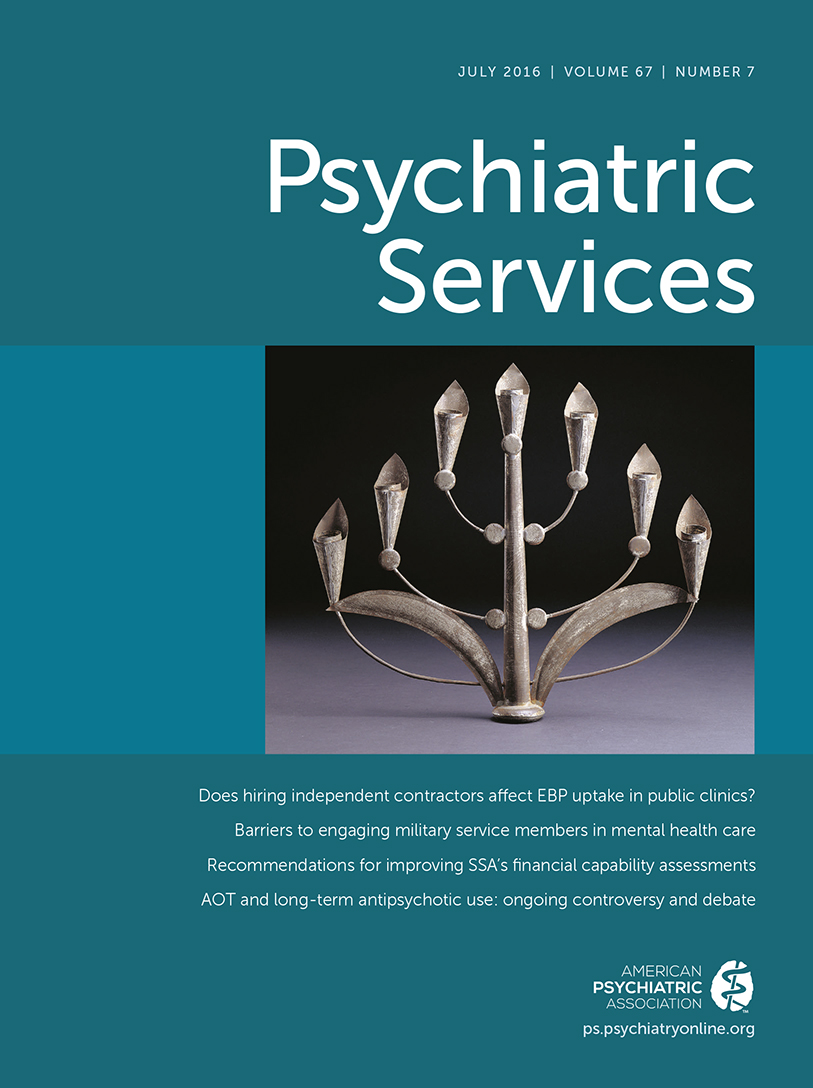Independent Contractors in Public Mental Health Clinics: Implications for Use of Evidence-Based Practices
Abstract
Objectives:
Community mental health clinics are increasingly utilizing independent contractors to provide clinical services. At the same time, many organizations are participating in initiatives intended to increase implementation of evidence-based practices (EBPs). The primary aim of this study was to understand the associations of utilizing independent contractors with clinician knowledge and attitudes toward EBPs and organizational culture and climate. The study also sought to understand the potential impact of using independent contractors on mental health services delivery from the perspective of organizational leadership.
Methods:
Quantitative data were collected from 130 therapists in 23 organizations; qualitative data were collected from executive administrators in nine of the 16 organizations participating in EBP initiatives sponsored by the City of Philadelphia. Regression with random effects was used to estimate the associations between worker status (contractor or employee) and clinician attitudes toward EBPs, knowledge of EBPs, and organizational culture and climate. Qualitative inquiry was used to understand the impact of reliance on independent contractors on organizational participation in EBP initiatives.
Results:
Independent contractors endorsed less positive attitudes toward EBPs and scored lower on knowledge of EBPs. Interviews revealed four main themes: reasons for using independent contractors, general consequences of using independent contractors, specific impact of independent contractors on participation in EBP initiatives, and suggestions for alternatives.
Conclusions:
A growing number of community mental health clinics rely on independent contractors. There may be consequences of this shift that deserve exploration.



